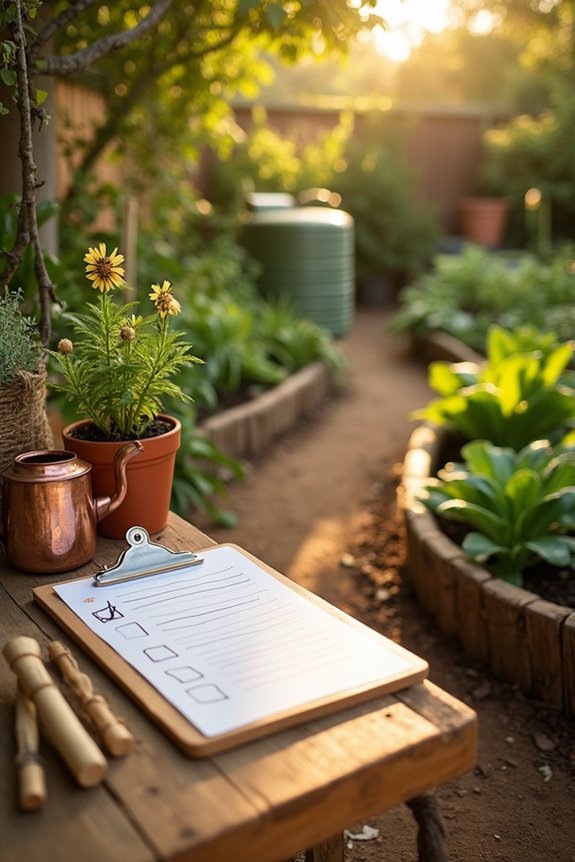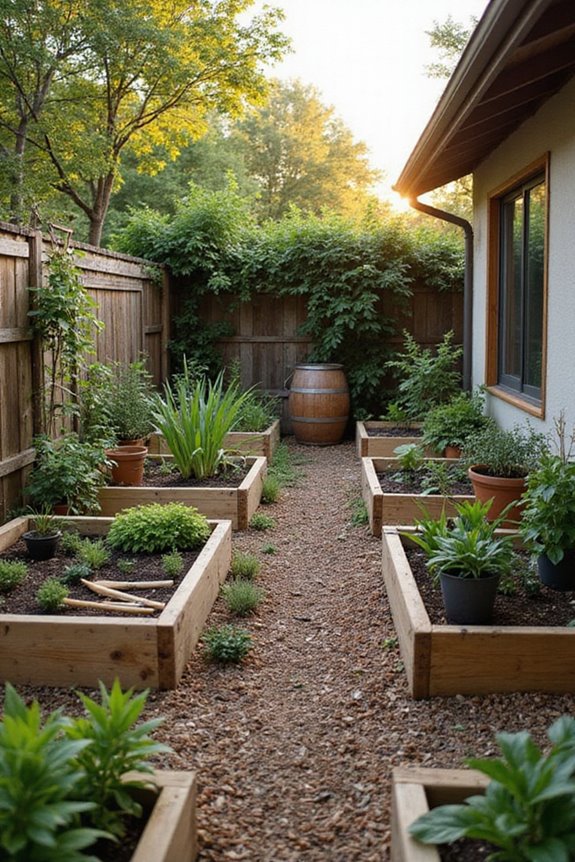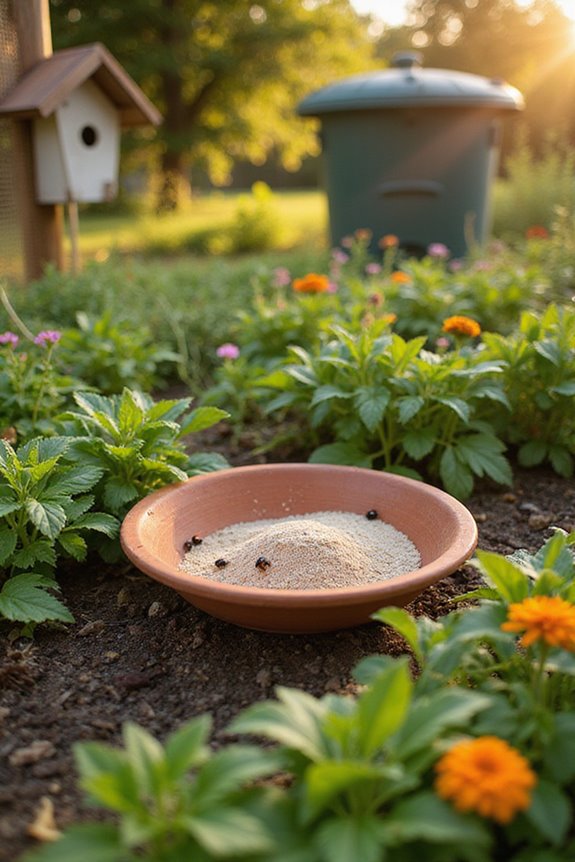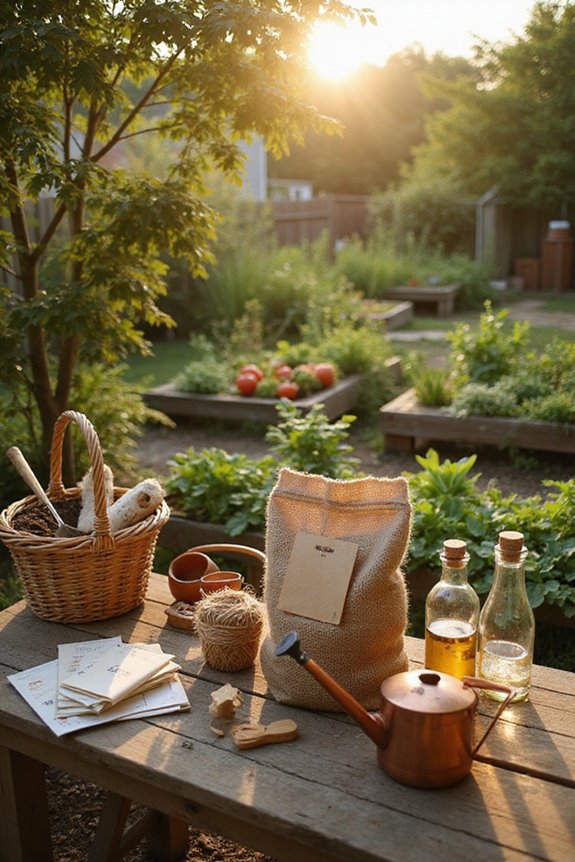Sustainable gardening offers numerous benefits that we can all appreciate. First, it boosts our health by providing fresh produce and enhancing wellbeing. Next, it protects the environment by reducing carbon footprints and promoting biodiversity. We also enjoy economic advantages, like saving on grocery bills and increasing property value. Finally, sustainable gardening fosters community cohesion through shared spaces and experiences. Together, we can explore more ways to enhance our lives and surroundings through responsible gardening practices.
Key Takeaways
- Sustainable gardening practices significantly lower carbon footprints and combat climate change through carbon sequestration and efficient resource use.
- It enhances nutrition and dietary diversity by providing access to fresh, nutrient-dense produce from home gardens.
- Engaging in gardening boosts mental health, emotional wellbeing, and overall life satisfaction through physical activity and a sense of accomplishment.
- Home gardens can save families money on groceries, potentially reducing expenses by up to $500 annually.
- Community gardens promote social cohesion, strengthen neighborhood connections, and support local economies, fostering resilient communities.
Health and Wellbeing Benefits
When we think about health and wellbeing, gardening offers a variety of benefits that can enhance our lives. Engaging in gardening can greatly boost our mental health by reducing symptoms of depression and anxiety. Studies show that those who garden often report higher life satisfaction and improved emotional wellbeing.
Additionally, gardening provides excellent physical fitness. It’s an aerobic exercise that helps us burn calories and strengthen our muscles. Activities like digging and raking can improve our dexterity, which is especially helpful during rehabilitation.
Environmental Impact
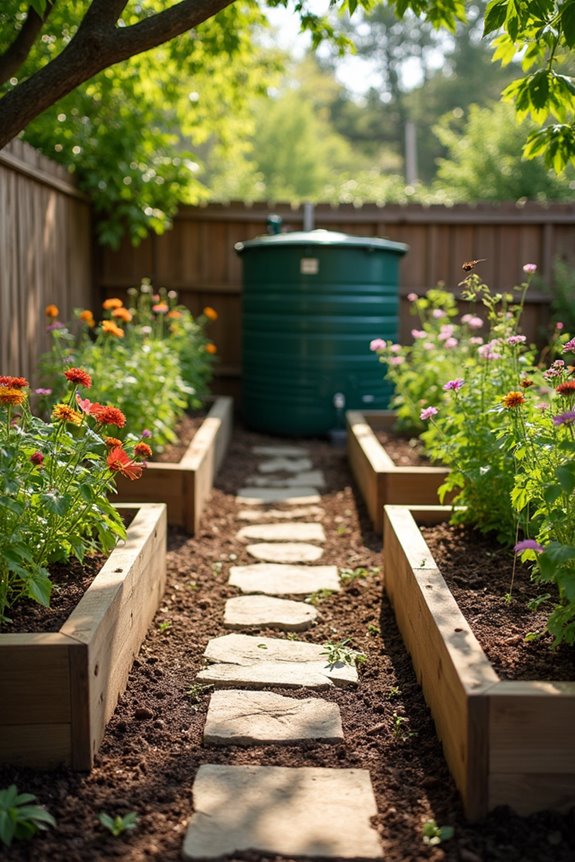
Sustainable gardening plays an essential role in reducing our environmental impact. By adopting organic practices, we can greatly lower our carbon footprint. For instance, organic farming has a 47% reduced potential for nutrient pollution, which benefits our ecosystems.
Additionally, using compost and mulch helps sequester atmospheric carbon, which is vital for combating climate change. Urban gardens, while beneficial, often have a higher carbon footprint compared to conventional methods, especially with short-lived raised beds. Implementing efficient water use techniques further enhances sustainability by conserving vital resources.
To maximize our efforts, we should focus on using these beds for longer periods. By understanding these trade-offs and embracing organic techniques, we can cultivate gardens that contribute positively to our environment while fostering a sense of community and belonging.
Food Diversity and Nutrition
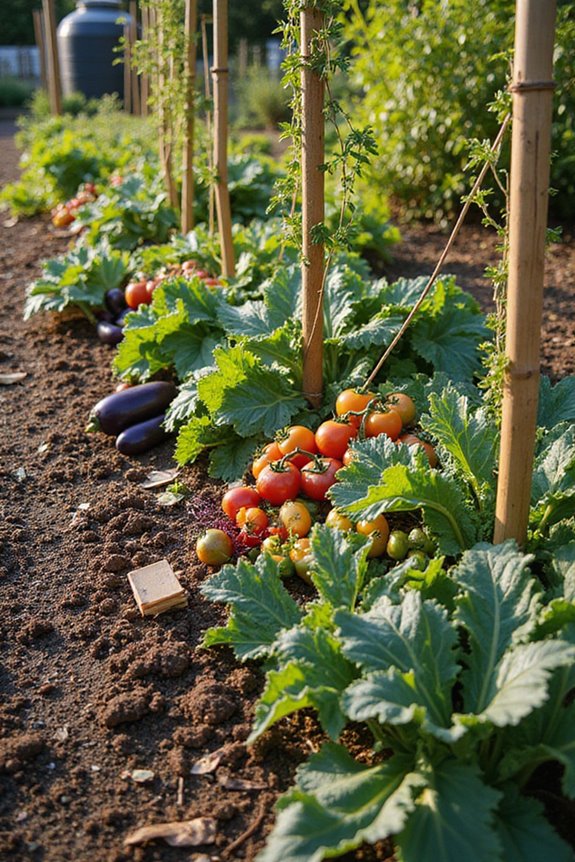
Growing our own food in home gardens can greatly enhance our nutrition and dietary variety. By planting diverse fruits and vegetables, we boost our dietary diversity and improve nutrient access. Home gardens often provide 20-60% of our fresh produce, including nutrient-dense crops like leafy greens and legumes. This leads to higher intakes of essential proteins, vitamins, and minerals, which are vital for our health.
Additionally, home gardening helps reduce vitamin A deficiencies and other micronutrient malnutrition, especially in low-income communities. It offers quick access to fresh foods, making it easier to maintain a balanced diet. Together, we can cultivate healthy habits and create a more sustainable food source right in our backyards.
Climate Change Mitigation
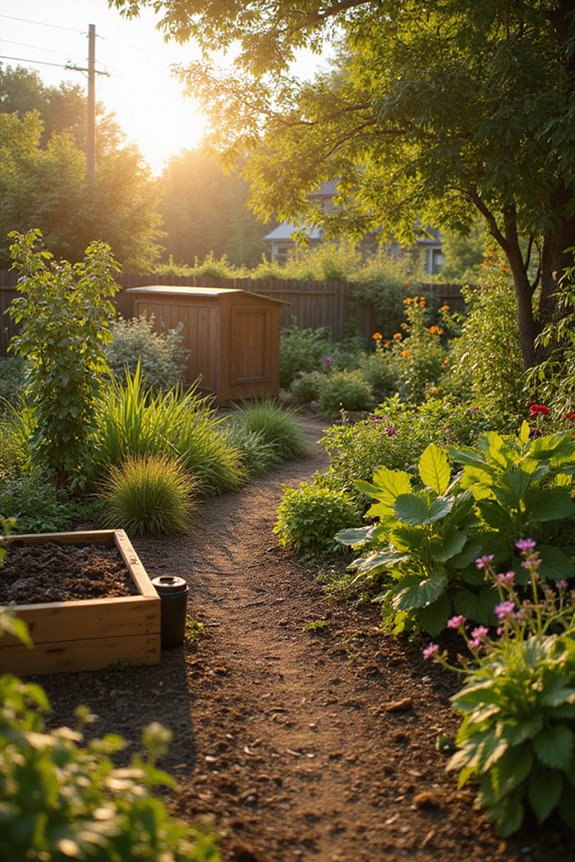
Climate change poses significant challenges, but we can take action through effective gardening practices. By adopting sustainable gardening methods, we enhance carbon sequestration. Plants absorb carbon dioxide and store it in the soil, which helps reduce greenhouse gas emissions.
Here are some key ways we can contribute:
- Regenerative Practices: Avoid soil disturbance to maintain carbon storage.
- Healthy Soil: Improve microbial activity to capture and store more carbon.
- Local Food Production: Grow fruits and vegetables nearby to cut down on fossil fuel use.
- Diverse Plantings: Incorporate various plants to improve ecosystem resilience and enhance carbon storage. Additionally, utilizing moisture management techniques can help promote soil health and support plant growth.
Together, we can help mitigate climate change through our gardening choices.
Economic and Social Benefits
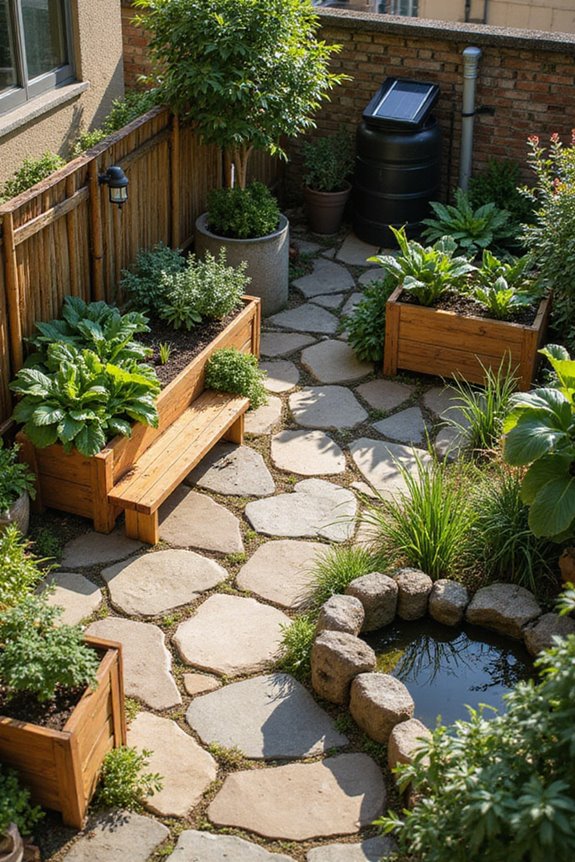
Investing in gardening offers numerous economic and social benefits that can positively impact our lives. For starters, home gardens can generate income by allowing us to sell surplus produce. This not only boosts our wallets but also promotes self-sufficiency. In addition, a well-maintained vegetable garden can save us up to $500 a year on grocery bills, greatly reducing our food expenses.
Additionally, sustainable gardening enhances property value. Beautiful gardens improve our home’s aesthetics and can attract potential buyers. Also, community gardens foster social cohesion, bringing neighbors together and creating a sense of belonging. By participating in these efforts, we support local economies and contribute to a resilient community. Ultimately, gardening is a meaningful way to enrich our lives economically and socially. Moreover, utilizing eco-friendly bamboo stakes can further enhance our gardening efforts while promoting sustainable practices.
Biodiversity Conservation
Biodiversity conservation is essential for creating thriving gardens that benefit both us and the environment. By enhancing habitat diversity, we can support local wildlife, offering food and shelter to birds, insects, and small mammals. Planting native species fosters habitat restoration, ensuring that our gardens meet the unique needs of local fauna.
Additionally, promoting soil health is vital. Diverse plant root systems improve nutrient cycling and encourage beneficial microorganisms, which enhance plant growth. This healthy soil not only supports our gardens but also increases resilience to drought and pests. Incorporating a variety of plants and structures creates layered habitats, enriching our gardens and contributing to the long-term preservation of biodiversity, making our gardening efforts more impactful for the environment. Moreover, utilizing natural pest control methods can further support biodiversity by reducing chemical exposure and promoting a healthier ecosystem.
Community Engagement and Cohesion
Community gardens play an essential role in fostering engagement and cohesion among neighborhood residents. They offer a unique space where we can build community friendships and enjoy social belonging. Through gardening activities, we connect with diverse individuals, allowing us to collaborate and work as a team.
- Structured Activities: Gardening provides clear opportunities for teamwork and relationship-building.
- Youth Programs: These initiatives help young people develop interpersonal skills and become positive community members.
- Enhanced Trust: Involving local police in garden programs strengthens community safety and cooperation.
Frequently Asked Questions
How Can I Start a Sustainable Garden at Home?
To start a sustainable garden at home, we should focus on soil health through composting methods and proper planning. Together, we’ll create a vibrant space that nurtures plants, supports biodiversity, and enriches our community.
What Tools Are Essential for Sustainable Gardening?
When we think about essential tools for sustainable gardening, we can’t overlook eco-friendly tools. They enhance our composting techniques while minimizing waste. Together, let’s embrace tools that nurture our gardens and the planet!
Can Sustainable Gardening Be Practiced in Small Spaces?
Absolutely, we can practice sustainable gardening in small spaces! By using vertical gardening and container gardening techniques, we’re maximizing our space while nurturing plants, creating vibrant green corners that bring us closer to nature together.
What Are Common Pests in Sustainable Gardens and How to Manage Them?
In our gardens, pest identification is key to effective management. By embracing organic solutions, like companion planting and manual removal, we can create a thriving ecosystem, ensuring our plants flourish while minimizing harmful pests together.
How Does Weather Impact Sustainable Gardening Practices?
Weather greatly impacts our gardening practices, pushing us toward climate adaptation and enhancing weather resilience. By choosing native plants and improving soil health, we can thrive together, creating a sustainable environment that supports our community.


